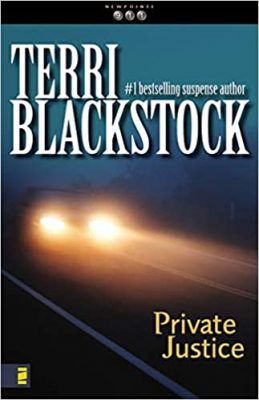You could be a winner!
You could be the winner of this ebook, Second Opinion by Hannah Alexander.
To enter: just comment on this Book Blast in the comment boxes below or send a comment to this address: DebBrammer@gmail.com.
I will choose a winner to receive this ebook at random from all my Book Blast readers who comment in the next three days (before August 10, 2022.)
In my May Book Blast, I gave away Private Justice by Terri Blackstock. The winner was Anna K. You can see who this month’s winner is in my next Book Blast and read more about Second Opinion at the end of this Book Blast.
Coming September 22, 2022!
This is an exciting time for me! I’ve just finished writing Give It a Go, Book 2 in my New Beginnings series. I should get it back from the proofreader in about a week. Then pre-launch readers will take a look at it after that. I’ll make final changes. On September 22, 2022, I’ll launch it and it will be available to buy as an ebook. Though I’m done with the basic writing, I have many tasks to complete before September 22.
All three books in this series feature Americans partnering with New Zealanders in church planting ministries. I really enjoyed writing this book because the situation really made me think. What would it be like for a non-missionary widow, about fifty, to date a missionary pastor who had lost his wife? What kind of changes would she have to make if the relationship ended in marriage?
Pastor Greg needs a new wife, but how can he begin to date when he lives in the goldfish bowl of a mission church, ten thousand miles away from his home in America?
Two years after the death of his beloved wife, Greg finds being a single pastor creates a lot of problems. When a married woman misreads his intentions, Greg feels the Lord leading him to look for a new wife.
Jennifer is happy with her life and job in America and glad to live close to her children and grandchildren. When MacKenzie suggests Jennifer take a puppet team to New Zealand, Jennifer suspects a matchmaking scheme and responds with a definite “uh uh.” No way is she going to fly to New Zealand to throw herself at a missionary pastor she respects him too highly to consider dating. Or is dating even possible in their situation?
When the compelling nature of the mission trip calls to Jennifer, however, she agrees to go, to pass new skills on to mission churches—and nothing else! When Greg asks the unthinkable, will she be willing to give the idea a go, trusting God to lead her down a different path, not knowing where it will lead?
Pre-launch Readers Wanted!
Do you love reading Christian contemporary fiction? Would you enjoy taking part in the publishing process? If your answer is “Yes!” you might want to become one of my pre-launch readers.
Pre-launch readers read a book before it is released so that they can help the author in several ways. Right now, I’m looking for three kinds of pre-launch readers.
- Review builder (AKA ARC reader): They prepare reviews of my book ahead of publication to post a few days before launch day.
- Feedback reader (AKA beta reader): They give feedback to me to improve my writing.
- Buzz group (AKA street team): They share posts and memes during my book launch with social media.
You choose what level of involvement you have in my launch. If it all looks like fun, you can do all three.
Review builders agree to read my book by September 15. (They should receive it by August 16.) They are encouraged, but not required, to post a review of the book at an online bookstore (Amazon, Apple, Barnes & Noble, or Rakuten Kobo) in the week prior to launch day (September 15 to 22.) A review can be as simple as a couple sentences stating what you liked or didn’t like about the book. As an independent author, I greatly appreciate every honest review. If a person really doesn’t enjoy the book and can’t think of anything good to say about it, she is free to bow out, but a review builder shouldn’t feel pressured to give a certain star rating or feel she can only give positive remarks. If you choose to be a review builder, I will guide you to the information you need.
Feedback readers agree to read my book by September 6. (They should receive it by August 16.) They give me feedback about various aspects of the book. A feedback reader is not a proof reader or an editor or even a writer. A feedback reader is someone who reads a book like an average reader and helps the author know what works and what doesn’t. The author considers the comments of her beta readers, considering what changes can be made to make the book stronger before submitting the final form for publication.
After you read the ebook, you would share your viewpoint as a reader. I’d give you some questions you might want to answer and you could comment on anything in the book that you like or don’t like. When I receive your comments, I would gather comments from all my feedback readers and consider making changes to make the book stronger. I promise to consider the suggestions you make, but I may not make all the changes you suggest or explain my reasoning. If several feedback readers mention the same concerns, I’ll know I need to make changes in those areas.
Buzz group members would agree to share at least some of the posts I share at launch time. This would include memes and posts that show what my book is about and give buy links. I never pressure people to buy my books and buzz group members get to choose which posts they share. At present, I primarily post on Facebook.
If you choose to be my pre-launch reader, you would receive these benefits:
- You’d get the first peek at my new book
- You’d be able to take part in the writing process
- I would acknowledge you in the book
- I would gift you the published ebook when it comes out
- I would send you a small gift to thank you for your participation
If you are interested in becoming one of my Pre-launch readers, please email me at this address: artdebbrammer@gmail.com . I will send you a letter that will give you more details.
Special offer in my next Book Blast:
I will offer Short Poppies, Book 1 in New Beginnings, at one quarter of the regular price! That gives you a chance to read Book 1 before Book 2 comes out.
Now for the free drawing of Second Opinion by Hannah Alexander.
And the winner is … It could be you! All you have to do to enter the draw is to leave a comment in one of the comment boxes below or write to me at this address: DebBrammer@gmail.com .
Here’s my review of Second Opinion, #1 in Healing Touch series:
Archer Pierce is the single pastor of Dogwood Springs Baptist Church and also serves as chaplain to the ER department of the local hospital. Lauren McCaffrey is a caring nurse in the ER. Grant Sheldon, a father of twin teenagers, has recently lost his wife, and is struggling to come to terms with her death. This small-town series brings caring church members and caring hospital staff into contact with a hurting community. It deals realistically with church and medical issues and explores the path from romance to marriage with Christian singles who want to please the Lord. I’ve just read this series for the third time and enjoyed this distinctively Christian novel just as much as ever.
I highly recommend this book and this series.






